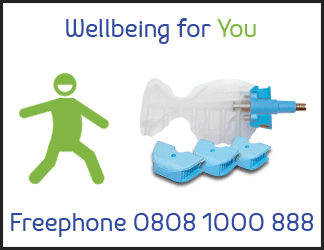
Once upon a time there lived a clinician, a dental practice and a patient. The clinician enjoyed their job, they practised in comfort every day and were looking forward to being able to retire in good health. The dental practice was performing brilliantly too. With the support of a happy and healthy team who were eager to adopt the latest techniques, they worked together to ensure the practice ran profitably and efficiently. The patient, who was of a slightly nervous disposition, had beaten all the odds by overcoming their fear of the dentist. They were especially grateful to their local dental practice for implementing new procedures that ensured their visits were comfortable and stress-free. And they all lived happily (and healthily) ever after!
OK! This may sound like the start of a tall story, but that doesn’t mean this fairy tale isn’t something we should all be aspiring to. The three main characters in this story; the clinician, the practice and the patient, each have a key role to play in improving and maintaining their health and wellbeing. Whilst neither takes precedence over the other – the levels of contentment and satisfaction of one could easily have a domino effect on the wellbeing of the rest.
For example, if you, the clinician, are exposed to stressful scenarios and are practising in discomfort, then once your health and happiness start to deteriorate the patient’s welfare may also be compromised. Sooner or later this will be reflected in the overall performance of the practice. With this in mind, it’s essential to take care of both yourself and your team, so that career longevity, practice efficiency and patient comfort can strike a healthy balance.
Wellbeing for you – career longevity
Generally, dental professionals in the UK are faced with challenging working conditions, putting them at risk of work-related stress. The repercussions of this can lead to reduced health and wellbeing, both mentally and physically.
How you rate your overall life satisfaction, happiness and anxiety levels are all key indicators of your personal wellbeing. According to the BDA (2015), ‘there was a significant reduction in levels of personal wellbeing between 2013 and 2014 among GDPs’[i]. One contributing factor to this may be that clinicians are not sure who or where to turn to in such circumstances.
Regardless of age, gender or role in daily practice, livelife.dental aims to care for the dental team’s wellbeing to maximise career longevity and enjoyment, by providing solutions so that dentistry no longer has to be a pain in the back (or neck).
The same survey also highlighted that, ‘younger dentists (under 35 years old) rated their health most highly, with the likelihood of reporting being in good general health diminishing after the age of 35’ (BDA, 2015). Despite your age and perception of your health, the important thing to remember is knowing how to maintain it. So, whether you’re fresh out of dental school, at the peak of your career, or looking to retire in the next few years, the guidance and advice at livelife.dental will help you get to grips with stress-free practice management.
Moral of the story
The wellbeing of dentistry is about ensuring you, your practice and your patients’ welfare are working in complete harmony. You might already have some steps and procedures in place to ensure this, but as with everything there is always room to improve.
To discover how you can improve your health and wellbeing, click here and we’ll be in touch with recommended solutions for you.
[i] Kemp M, Edwards H, (2015) Is there a well-being gap among UK Dentists? Results from the 2014 Dentists’ Well-being and Working Conditions surveys. London. P. 2-3. (Accessed Jan 2017).





